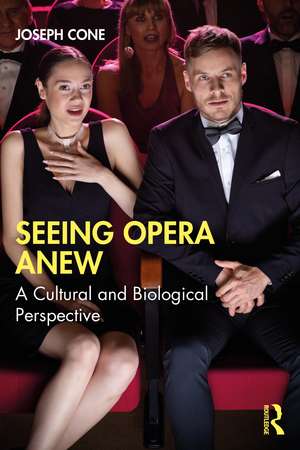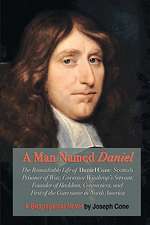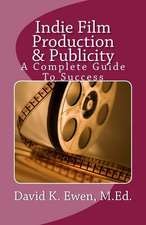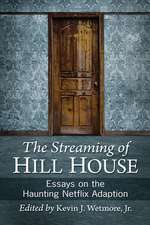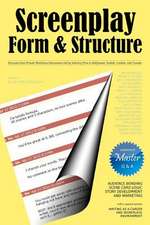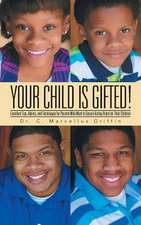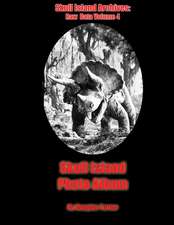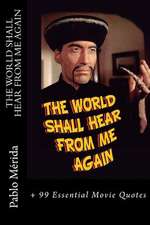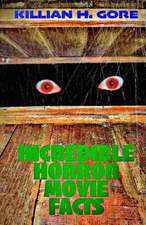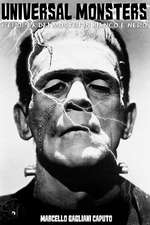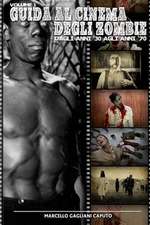Seeing Opera Anew: A Cultural and Biological Perspective
Autor Joseph Coneen Limba Engleză Paperback – 19 dec 2023
How and why can this combination of music and drama do that? What causes people to be moved by opera? How is it that people may become more informed about living and their own lives? Seeing Opera Anew addresses these fundamental questions.
Most approaches to opera present information solely from the humanities, providing musical, literary, and historical interpretations, but this book offers a “stereo” perspective, adding insights from the sciences closely related to human life, including evolutionary biology, psychology, anthropology, and neuroscience. It can be hoped that academic specialists less familiar with the science will find points of interest in this book’s novel approach, and that open-minded students and inquisitive opera-goers will be stimulated by its “cultural and biological perspective.”
| Toate formatele și edițiile | Preț | Express |
|---|---|---|
| Paperback (1) | 309.50 lei 6-8 săpt. | |
| Taylor & Francis – 19 dec 2023 | 309.50 lei 6-8 săpt. | |
| Hardback (1) | 999.98 lei 6-8 săpt. | |
| Taylor & Francis – 19 dec 2023 | 999.98 lei 6-8 săpt. |
Preț: 309.50 lei
Nou
Puncte Express: 464
Preț estimativ în valută:
59.23€ • 61.49$ • 49.39£
59.23€ • 61.49$ • 49.39£
Carte tipărită la comandă
Livrare economică 24 martie-07 aprilie
Preluare comenzi: 021 569.72.76
Specificații
ISBN-13: 9781032184272
ISBN-10: 1032184272
Pagini: 188
Dimensiuni: 156 x 234 x 14 mm
Greutate: 0.27 kg
Ediția:1
Editura: Taylor & Francis
Colecția Routledge
Locul publicării:Oxford, United Kingdom
ISBN-10: 1032184272
Pagini: 188
Dimensiuni: 156 x 234 x 14 mm
Greutate: 0.27 kg
Ediția:1
Editura: Taylor & Francis
Colecția Routledge
Locul publicării:Oxford, United Kingdom
Public țintă
General, Postgraduate, Undergraduate Advanced, and Undergraduate CoreCuprins
Contents
Preface
PART 1 Music-Dramas, Evolutionary Biology, and Psychology
Part 1 Introduction: What Science has to Offer
1 Orfeo: Stories, Singing, and Sexuality
2 Rodelinda: Emotion, Music, and Drama
3 L’Elisir d’Amore: Mate Choice, Comedy, and Consonance
4 Le Nozze di Figaro: Marital Commitment and Challenges to it
5 Don Giovanni, Wozzeck: Assessing Adult Character
6 Die Walküre, Simon Boccanegra: Parenting, Power, and Posterity
7 The Tempest, Lear, Falstaff: Aging and Wisdom
PART 2 Cultural Considerations Regarding Opera
Part 2 Introduction: What is meant by “Culture”
8 Attracting Audiences: War and Peace, Omar, Song from the Uproar
9 Origins and Innovations: Before and After La Bohème (the movie)
10 Affording Extraordinary Experiences: Les Troyens, Akhnaten
Index
Preface
PART 1 Music-Dramas, Evolutionary Biology, and Psychology
Part 1 Introduction: What Science has to Offer
1 Orfeo: Stories, Singing, and Sexuality
2 Rodelinda: Emotion, Music, and Drama
3 L’Elisir d’Amore: Mate Choice, Comedy, and Consonance
4 Le Nozze di Figaro: Marital Commitment and Challenges to it
5 Don Giovanni, Wozzeck: Assessing Adult Character
6 Die Walküre, Simon Boccanegra: Parenting, Power, and Posterity
7 The Tempest, Lear, Falstaff: Aging and Wisdom
PART 2 Cultural Considerations Regarding Opera
Part 2 Introduction: What is meant by “Culture”
8 Attracting Audiences: War and Peace, Omar, Song from the Uproar
9 Origins and Innovations: Before and After La Bohème (the movie)
10 Affording Extraordinary Experiences: Les Troyens, Akhnaten
Index
Notă biografică
Joseph Cone graduated from Yale University (literature, music, science) and the University of Oregon (communications), and for four decades at Oregon State University his faculty position involved research in, and the practice of, science communication with the public. His love and knowledge of opera began at home and school and grew through years of enjoyment, study, and attending performances. This book is his sixth.
Recenzii
“Responses to opera performances can be ecstatic and overpowering. Using insights from a variety of human sciences, Joseph Cone applies a 'stereo' perspective to explore how and why opera as a living performance affects our emotions so deeply. The second part of the book, which deals with cultural evolution, is up to date with recent music psychology, philosophy of music and opera, and recent evolutionary psychological thinking. A book like no other, Seeing Opera Anew is well-researched and scholarly, and also a pleasure to read.”
Ellen Dissanayake, author of What Is Art For? and Homo Aestheticus: Where Art Comes From and Why
“Joseph Cone’s Seeing Opera Anew strikes out many new connections between the arts, especially music-drama, and human nature. He lucidly scans about a score of masterpieces, discerning patterns outlined by evolutionary psychology and citing recent findings in anthropology and the psychology of emotions. In effect, he sketches out an enormous sphere of influences on our experiences in this, the most ambitious of the arts. Readers new to opera and established fans alike will find much to learn and enjoy in this truly multifaceted volume.”
Brett Cooke, Professor of Russian, Texas A&M University
"This innovative and illuminating collection of short essays critically explores the history of opera through new realms of connection and serendipity. Cone has assembled a diverse representation of operatic style, period, and practice; inviting the reader to devolve further. Rich in imagery, colour, and anecdote, each essay situates an enduring operatic example within contemporary modalities, providing the art form with enhanced relevance, sustainability, and impact in an increasingly complex and challenging global market. Cone's innate knowledge, passion, and humor shine through, ensuring the storytelling remains inclusive and accessible to all readers. I highly recommend this publication as a key work that affords historic operatic practice a new 'home' within contemporary locales – with surprising and compelling results."
Nicole Panizza, Assistant Professor, Music, Coventry University, UK
Ellen Dissanayake, author of What Is Art For? and Homo Aestheticus: Where Art Comes From and Why
“Joseph Cone’s Seeing Opera Anew strikes out many new connections between the arts, especially music-drama, and human nature. He lucidly scans about a score of masterpieces, discerning patterns outlined by evolutionary psychology and citing recent findings in anthropology and the psychology of emotions. In effect, he sketches out an enormous sphere of influences on our experiences in this, the most ambitious of the arts. Readers new to opera and established fans alike will find much to learn and enjoy in this truly multifaceted volume.”
Brett Cooke, Professor of Russian, Texas A&M University
"This innovative and illuminating collection of short essays critically explores the history of opera through new realms of connection and serendipity. Cone has assembled a diverse representation of operatic style, period, and practice; inviting the reader to devolve further. Rich in imagery, colour, and anecdote, each essay situates an enduring operatic example within contemporary modalities, providing the art form with enhanced relevance, sustainability, and impact in an increasingly complex and challenging global market. Cone's innate knowledge, passion, and humor shine through, ensuring the storytelling remains inclusive and accessible to all readers. I highly recommend this publication as a key work that affords historic operatic practice a new 'home' within contemporary locales – with surprising and compelling results."
Nicole Panizza, Assistant Professor, Music, Coventry University, UK
Descriere
Seeing Opera Anew offers a “stereo” perspective to opera, adding insights from the sciences closely related to human life, including evolutionary biology, psychology, anthropology, and neuroscience. It has a novel approach, and a “cultural and biological perspective.”
